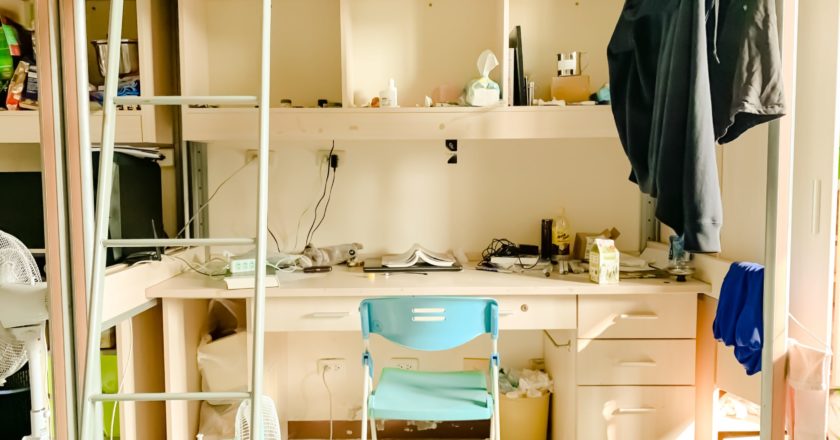As graduation approaches, you’re likely thinking about what you’ll do after you cross that stage, get your diploma, and move on to the next level of your life. However, before you even get that far, you need to get some important tasks sorted out so you can set yourself up for success. Start with these five steps.
1. Take a Breath and Get Anxiety in Check
After spending two-plus years in college, it’s only natural to feel anxious about leaving your familiar surroundings and being thrust toward the world outside of school. You might be thinking about how hard it will be to find a job, where you’ll live, and generally, what comes next for your life. If you don’t control these worrisome emotions, you’ll only feel worse once you graduate, so try to quell your anxiety by confiding in the school counselor or talking to your parents so they can put you at ease.
You can also manage your anxiety using your senses. For instance, sometimes you feel better via your sense of touch by getting a hug from someone you care about. Sometimes, pleasant scents like jasmine and lavender melt your stress. You can also ease your anxiety through taste by drinking a soothing cup of chamomile tea. Try a few remedies and see what works.
2. Update Social Media Accounts
It’s important to closely scrutinize your social media accounts as you prepare for the job search and life of adulthood outside of college. Use this as a turning point, where you start to portray yourself in a more professional light. You can post pictures of your graduation, shots of you at your college job, or just photos with friends and family, so employers can see you have a well-rounded life.
Take this time to create a profile on LinkedIn. You may have a limited amount of job experience to post there, but you can add a professional headshot, details about your major and classes, and your aspirations for a new job. That information will show off your skills, and employers can find you by using the keywords on your profile.
3. Start Getting Your Resume in Order
As with your LinkedIn profile, you likely won’t have much to say on your resume at this point. However, you’ll need one to apply for jobs, so it’s a good idea to start putting it together. List your education and any jobs you had before and during college. Showing that you worked while keeping up with your classes will tell potential managers a lot about your work ethic.
Fill in some empty space by adding a section with the skills you learned in school that can help you in a future job. Focus on leadership skills like communication, adaptability, and empathy, and try to show how you used some of them in the past. If you learned technical skills specific to the type of job you’ll be seeking, be sure to add those as well.
When you list skills and accomplishments, make your resume appear more impressive by using “power words”. When you’re talking about past achievements or jobs you’ve held, use action verbs to describe what you did. Action verbs include strong words like “coached,” “facilitated,” “motivated,” and “developed,” among others. These words show that you used initiative to make something happen in your past, and you can do it again at this new company. Don’t overpower your resume with these words; use them subtly when they fit the context.
4. Start Your Job Search
Put yourself ahead of the competition by starting your job search even before you graduate. In a perfect scenario, you would have interviews lined up before or soon after you graduate so you can hit the ground running once you get out. Instead of just firing your resume to any company that asks, think about what you want to do for a living, then apply and target your resume toward those jobs.
As you’ll soon learn, in many cases, just turning in a resume may not be enough, and some companies may not even respond. It may not be because you’re unqualified, but that they get a lot of resumes day after day. So, if you want to work at a company, it’s wise to follow up with a phone call or email to jar their memory. Since it takes time to find a suitable company, send in your materials, and interview, it’s essential to start preparing early.
5. Start Networking
While you’re in college, try to meet as many people as you can, especially those in your same degree program. You never know if there may be a connection that you’ll need to get a job. If you don’t know where to turn, consider connecting with an alumni association or at least start researching groups to join after graduation. Once you find one, try to become a member and become active within the organization. Learn about the committees they host and volunteer your time and try to attend a few events throughout the year. Even if an alum is not part of the group, consider contacting them if you think they can help. The more people on your side after graduation, the better.
This is your essential checklist for the steps you should take when you realize that graduation day is quickly approaching. Take an active approach to your future now, and you’ll be ready when the big day comes.
SEE ALSO: Five Best Freelance Jobs for College Students in 2023











